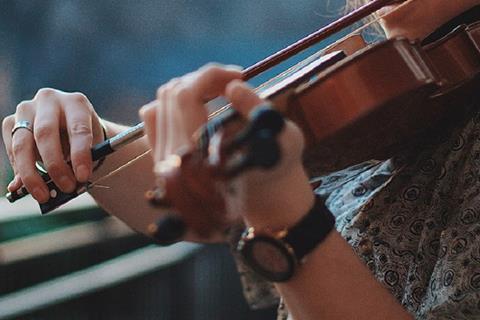Emma Allingham, a music psychology researcher at the University of Hamburg, shares her insight into the psychology of music practice

If you met a genie who offered to grant you one musical skill for the rest of your life, a skill that would flow effortlessly and masterfully from you whenever you needed it, what would you choose? Stage charisma? The ability to move your audience? Technical prowess? If you are wise, you might choose the skill of practice. Because mastering the skill of musical practice could mean mastering all musical skills.
We all know that quantity of practice is important. The popular claim that 10,000 hours of practice is the key to becoming an expert in any task holds some truth – you don’t get to Carnegie hall without spending a sizeable chunk of your waking hours cranking out scales and etudes.
However, music psychology studies have shown that quantity of practice alone doesn’t tell the whole story. Expert players vary a lot in the number of practice hours they put in, and on average amount of practice can only account for about 30% of variation in performance quality, meaning that 70% of the story about musical expertise remains untold. Here we turn to the real topic of interest: quality of practice.
What makes good quality practice? What does it consist of and what does it feel like? What is happening in a practice session when we go from not being able to do something, to being able to do it? Since the 1700s, musicians have been writing books on how to practise, but it is only in the past 100 or so years that music practice has begun to be studied systematically.Musical skills, particularly in the classical sphere, are inherently passed down from the master teacher to the apprentice student, with little questioning of why we practise in particular ways or if we are using the best approaches.
Music psychology research can help us to answer these questions. Research on practice has told us that structure, goal planning and self-evaluation are important ingredients for good quality practice, while morning may be our most productive practice time. Other fun practice-psychology facts include that filming yourself while practising can help to guard against choking under pressure, and beginners can learn sequences better if they practise them in a random order, rather than playing each one repetitively.
Another interesting area for psychologists is how tempo is used in music practice. What do you think is the best approach for learning to play a fast passage? Starting slowly and gradually increasing the tempo is probably the most commonly used approach, but research shows that pianists can learn scale passages quicker if they switch between just two tempi – slow and fast. There’s a lot to be learned about the benefits of slow practice, too. As well as providing a starting point for learning to control muscle movements, slow practice may play a pivotal role in learning to self-evaluate, building confidence and developing memorisation skills. Practising slowly might also help us to experience flow – the mental state of being effortlessly absorbed in what you are doing – during practice.
In fact, if you play an instrument you can join in the exploration of these topics by answering some questions in this online study about tempo and slowness in music practice. The online questionnaire (part of this research project at the University of Hamburg) will ask you about the techniques you use and the experiences you have during practice, and give you the chance to give your opinion on practice methods too.
So, don’t waste your valuable practice time ploughing away with the wrong strategies - take a tip from music psychology and get experimental in the practice room. Question what your teacher told you and come up with your own alternatives. Inform your practice and your teaching with current knowledge from music psychology, and do your bit for science by getting involved in new research (again, like this study here) to help push our understanding of practice to the cutting edge. With the efforts of musicians and researchers alike, we may find our magic genie after all.

Emma Allingham is a PhD researcher at the University of Hamburg in the European Research Council funded project SloMo. Before becoming a music psychology researcher, she trained as a classical violinist at the Royal Conservatoire of Scotland and worked for several years as a teacher and freelance musician. In her research, she is interested in the psychology of optimal performance and learning, and the role of bodily experiences in the communication of musical emotions. She employs empirical methods including behavioural and cognitive measures, as well as motion capture technology.











































1 Readers' comment